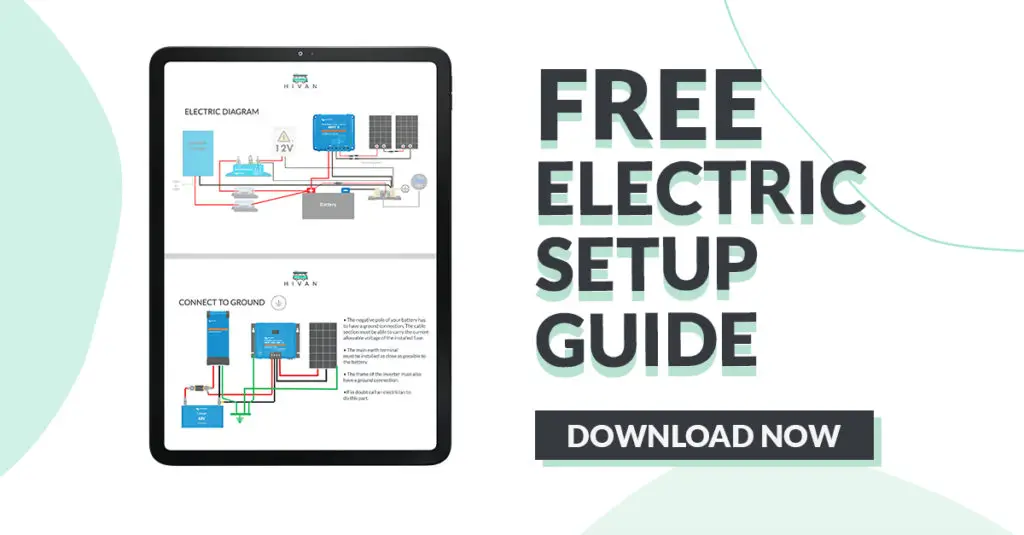Hi-van is supported by its audience. When you purchase using our links, we may earn an affiliate commission (no added cost to you). Learn more
If you are planning a road or camping trip, you might consider choosing a campervan as it is super convenient. Though smaller than other motorhome classes, campervans have several advantages that allow you to travel at your pace. However, you might be wondering if campervan taxes are cheaper than regular vans.

In most cases, campervan taxes are cheaper than regular vans. While some states don’t require sales tax for recreational vehicles, most allow some tax deductions. You might pay fewer taxes if your campervan qualifies for these tax write-offs.
The rest of this article will discuss why campervan taxes may be cheaper than regular vans and features that make them ideal for traveling. Read on to learn the advantages of owning campervans.
Why Are Campervan Taxes Cheaper Than Regular Vans?
All owners of US vehicles are required to pay vehicle taxes, and campervans are no exception. However, tax requirements for different vehicle categories may differ across states. Therefore, you may find that some states allow tax exemptions for types of vans.
Campervan taxes are cheaper than regular van taxes due to their eligibility for tax write-offs. For instance, if you’re using your RV as a second home, you may get some mortgage interest deductions. Moreover, some states have sales tax exemptions for RVs.
Now, let’s break down the tax details for the two types of vans and what write-offs you may enjoy if you own a campervan.
Campervan Taxes
Campervans are eligible for tax like other motor vehicles, and owners in the US pay up to $6 billion worth of taxes every year. Moreover, states have specific tax requirements.
In Florida, RV owners pay a 6% sales tax for RVs. Additionally, some counties charge a discretionary sales surtax for the first $5,000 of the sales price. They are also eligible for use tax if they’ve been in the state for over 6 months after the sale, hire, or in business.
In Minnesota and Illinois, the sales tax on RVs is 6.5% of the purchase price. Some counties also charge local sales or use taxes. South Dakota charges a 4-5% sales tax and 4% excise duty on RVs.
Although you have to pay the required tax for your campervan, you can also enjoy the following exemptions:
- Home mortgage interest deduction: If you’re using your campervan as your sole or second home, you may get a tax deduction for mortgage interest. But, your rig has to have a real home’s features, including cooking, sleeping, and toilet facilities. Also, if you used your RV as security for the loan you took while buying it, you’re eligible for this deduction.
- Sales tax exemptions: Some states offer sales tax exemptions for large purchases, including boats and RVs. Moreover, states like New Hampshire, Alaska, Oregon, Montana, and Delaware have no sales tax for RVs.
- Business tax deductions: Are you working from home, or rather, from your campervan? You might be eligible for a business tax deduction if you’ve been renting out your campervan or conducting your business there.
- Registration fee deductions: Some states offer tax deductions for vehicle registration fees, including campervans. They, however, depend on your RV’s weight and buying price. So, more costly RVs have higher deductions.
Regular Van Taxes
Regular vans are tax eligible, depending on the state you purchased or are using it. In almost all states, regular vans are eligible for the same sales and use taxes as RVs, excluding certain exemptions.
You’ll pay a 6.5% sales tax in Minnesota when purchasing or transferring your van. The tax is due if you buy the vehicle from an individual, car dealer, or leasing company. However, the sales tax does not touch on luxury taxes, extended warranties, federal excise tax, registration, licensing, or documentation fees.
Many states also have tax exemptions for some types of vans. These include:
- Church vans: In Michigan, some vans bought by houses of worship are exempted from tax. But, their capacity should be more than 10 passengers and only transport them for church functions.
- Farm vans: In Connecticut, Michigan, Florida, and Minnesota, vans used in farming activities are ineligible for sales taxes.
- Nonprofit organization vans: Some states, including Michigan, exempt sales taxes for vans belonging to nonprofit schools, hospitals, or rehabilitation centers.
More info: Check these articles about van life insurance. The Ultimate Guide to Van Life Health Insurance How Much Does Insurance Cost for a Van Conversion?
What Features Make Campervans Ideal for Traveling?
Recreational vehicles (RVs) have been in demand in the US in recent years. For instance, over 9 million American residents own various RV classes. Each category comes with specific features to suit different camping or traveling preferences.
You might be wondering why campervans are more suitable for travel than regular vans, right?
Campervans are ideal for traveling because they are convenient, cost-effective, and flexible to travel in. Moreover, campervans are fuel-efficient and self-sustained and are very functional with portable bathrooms and outdoor showers.
Campervans are Class B RVs. The vans’ sizes range from 17’ to 23’ (5.2 to 7.0 m) and weigh 4,000 to 9,000 lbs (2 to 4.5 tonnes). Though campervans lack some amenities in Class A and C RVs, they’re an ideal traveling option due to their features.
Here are reasons why you should consider a campervan for your road trip or vacation:
- Functional: Campervans may be smaller in size than other RVs, but manufacturers optimize the interior space. They can hold a full-size bed, a small kitchen, portable bathrooms, and outdoor showers.
- Self-sustained: You don’t have to worry about power and recharging when traveling by campervan. These motorhomes can go off-grid for a couple of days as they have solar electrical systems. They also have efficient batteries that harness, store, and deliver sustainable power.
- All-terrain vehicles: Campervans can maneuver on all terrains. So, a campervan will come in handy whether you’re touring a mountainous landscape or rugged countryside.
- Convenient and comfortable: Your biggest perk of traveling using a campervan will be to feel at home while on the road. You also don’t need fixed schedules as you can travel wherever and whenever you want to.
- Fuel-efficient: Rigs use less fuel than their fuel-guzzling counterparts. You’ll spend about $1,500 on gas or $1,346 on diesel for a campervan. Contrastingly, Class A and B RVs require twice the amount for fueling.
Conclusion
Campervan owners are eligible for more tax exemptions, or deductions, than regular van owners. Moreover, tax exemptions for other vehicles mostly apply for vans intended for institutional but not for personal use. If you follow the stipulated procedures and seek advice from professionals, you can save a few bucks while paying campervan taxes.
Find this content useful 🙂 ?
Subscribe to our Newsletter and get a free Solar Electric Diagram + shopping list.

